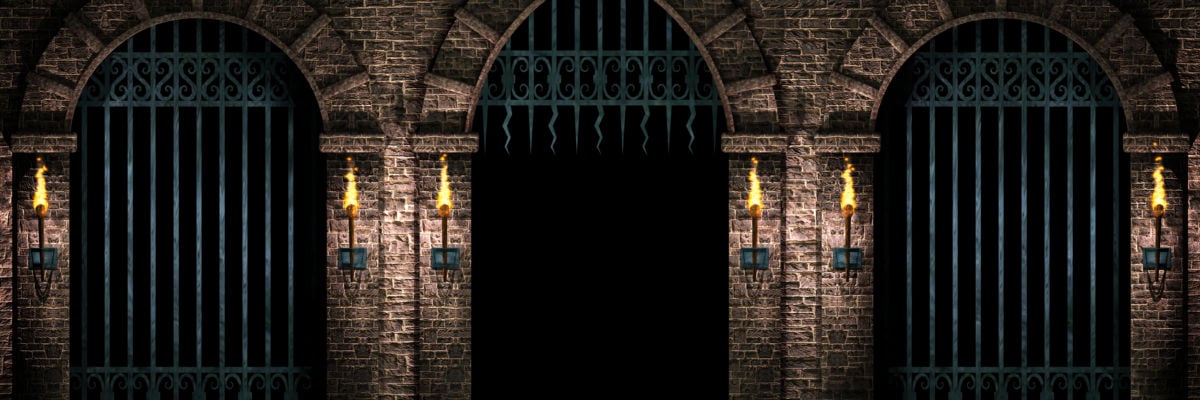
Ah, the dark ages—the scary time when the Catholic Church suppressed science and freedom, only to be defeated by the heroes of the Reformation and Enlightenment. Right? Well…not so much. Jimmy Akin deconstructs this popular myth on Catholic Answers Live.
Caller: I’ve watched an interview lately with John MacArthur and Ben Shapiro, and John MacArthur, when he was talking about the Catholic Church, was talking about how essentially the Catholic Church’s role in politics was what led in one way or another to the dark ages. They were, you know, super domineering in their reign and didn’t let anyone have freedom to have any commerce, and they were manipulative in their power, and so like the Church should never be involved in politics; and ultimately, the Protestant Reformation was what freed people from that. When the Reformation happened, every region that followed Protestantism was suddenly flourishing or something, and everywhere that was covered by Catholicism was just still in the dark ages until they started to catch on. I was wondering: how true is it that the Catholic Church was responsible for that? And if it’s not true, why is that a misconception?
Jimmy Akin: So this is basically a cartoon version of history. This is not reflective of what actually happened, and this kind of presentation is not taken seriously by competent scholars today.
Where it came from is a couple of things. Number one of them is: when the Protestant Reformation started, of course the reformers broke away from the Catholic Church, and there was enmity between the reformers and the Catholic Church, and so they didn’t like each other. And whenever you don’t like someone, you want to justify that to people, and so it’s in your interest to try to paint yourself as the good guys who are doing the heroic liberation, and your opponents, the people you don’t like, as nasty oppressors.
And you see that constantly. You see that, you know, even today in situations whenever you have one group of people come in and do, let’s say, a military conquest of a particular area, they always portray themselves as liberators. You know, back in the 1990’s, when Saddam Hussein invaded Kuwait and took it over, they portrayed themselves as liberating Kuwait, when what they really were doing was conquering it. And so there is a natural human tendency towards self-justification and towards vilifying the people that you’re in contention with. And so after the advent of the Protestant Reformation, you would have a lot of Protestants who would try to vilify the Catholic Church and portray the time period before the rise of the Reformation as bad, as a bad period, and blame it on the Catholic Church.
Then another movement began that’s known as the Enlightenment, and the Enlightenment is…you could have religious people in the Enlightenment, they were people who were sometimes called deists; they believed that there would be a God, but that he didn’t really involve himself in the world, or they might reject the existence of God altogether, or they might say “I don’t really know if there’s a God.” But they distanced themselves from classical Christianity, and so they didn’t like either the Protestant Reformation or the Catholic Church, and so they also were interested in vilifying the religious establishments of their day and the prior ages.
And that’s really where the idea comes from that the middle ages were “dark.” This is a metaphor that’s used to convey the idea that in the middle ages there was an extreme lack of knowledge and that people were not, say, interested in science or things like that; and that’s simply not true. If you listen to histories of science or read histories of science, actually, the middle ages were a period of enormous creativity. Now, they didn’t have modern science, but they were very interested in it; and it was in fact the priestly classes in Europe that were the leaders, scientifically. They were the people who were the most interested in science.
I’d like to recommend a couple of things that you could use to research that: one of them is a book called The Light Ages: the Surprising Story of Medieval Science. It focuses in particular on a particular British monk before the Reformation who was very interested in astronomy. His name was John Warwick, if I recall correctly—or John Westwick. And The Light Ages is a fascinating look at just how scientifically interested people were in the middle ages.
Also, The Great Courses has a course on the history of science—they actually have a couple, the one you want for this purpose is The History of Science: Antiquity to 1700, and you can get that as an audio book or watch it as a video series, I think. But it is it is really, really well done and points out just how intellectually curious and investigative people were in the middle ages—not just in the Christian world but in the Muslim world as well. And so I’d recommend those.
In terms of the some of the other things that John MacArthur—who is not favorable towards Catholics—in terms of some of the other things he mentioned like economic liberty and so forth: actually, capitalism was invented in Italy in the Renaissance era, and so actually the ideas behind modern capitalism are traced to a Catholic source, and you might want to check out books like How the Catholic Church Saved Western Civilization, and things like that to get the other side of the story.



